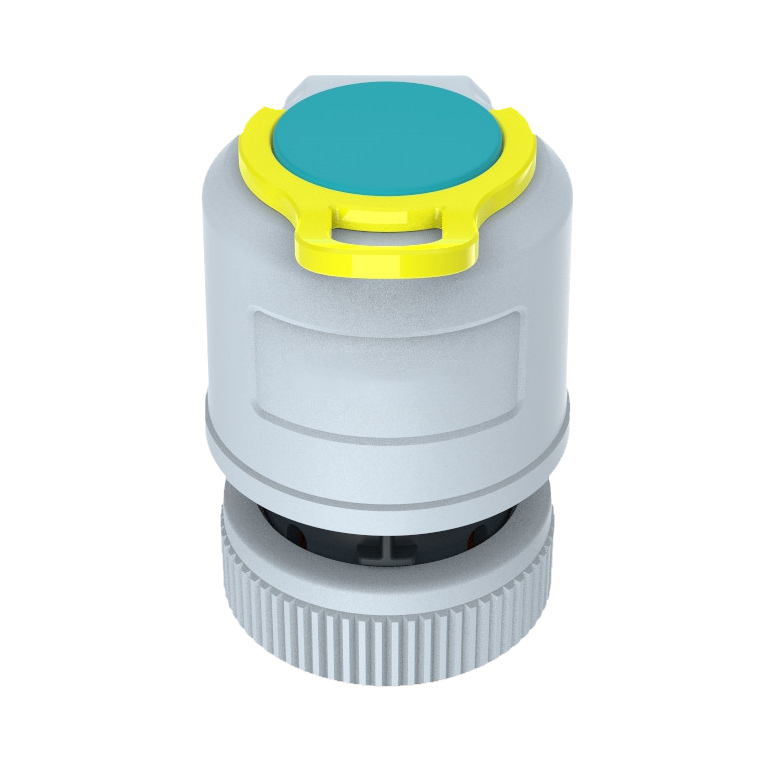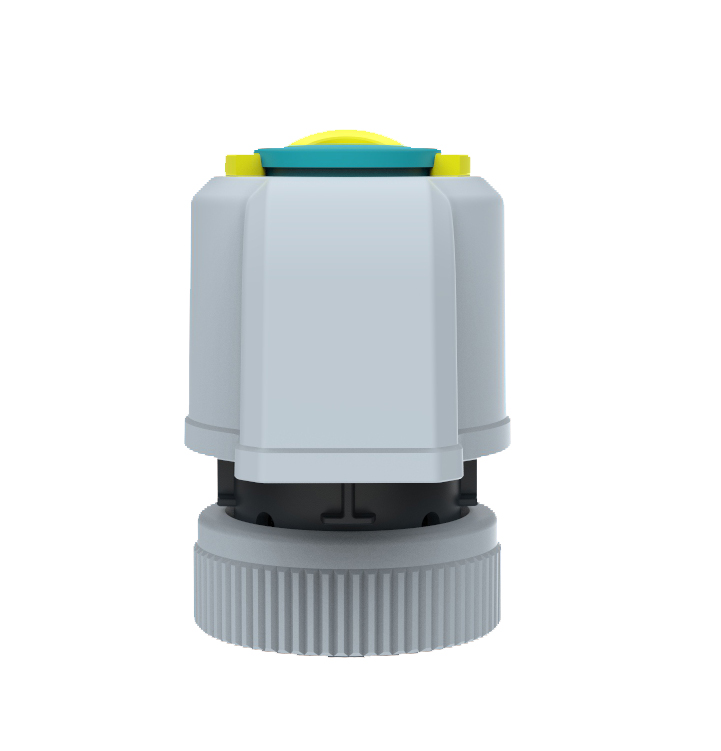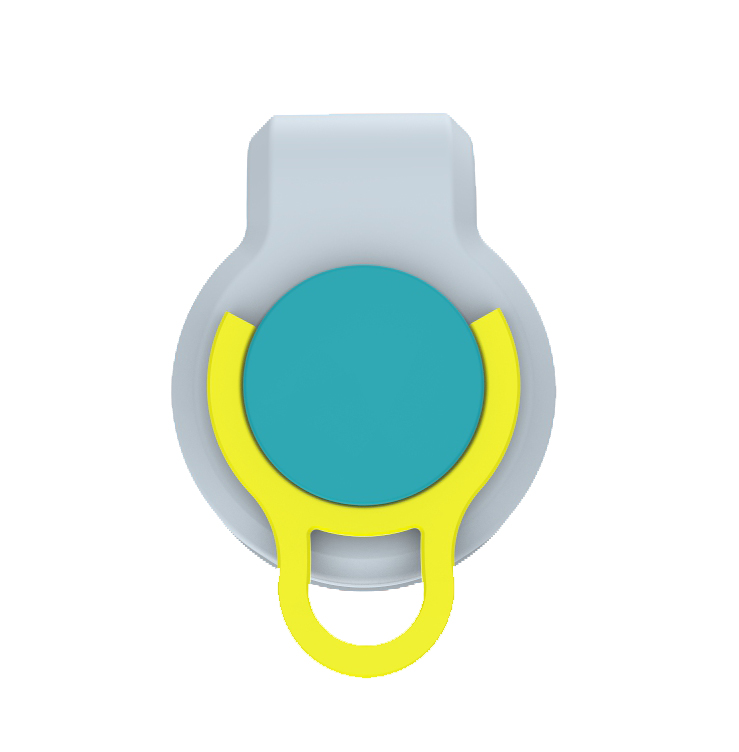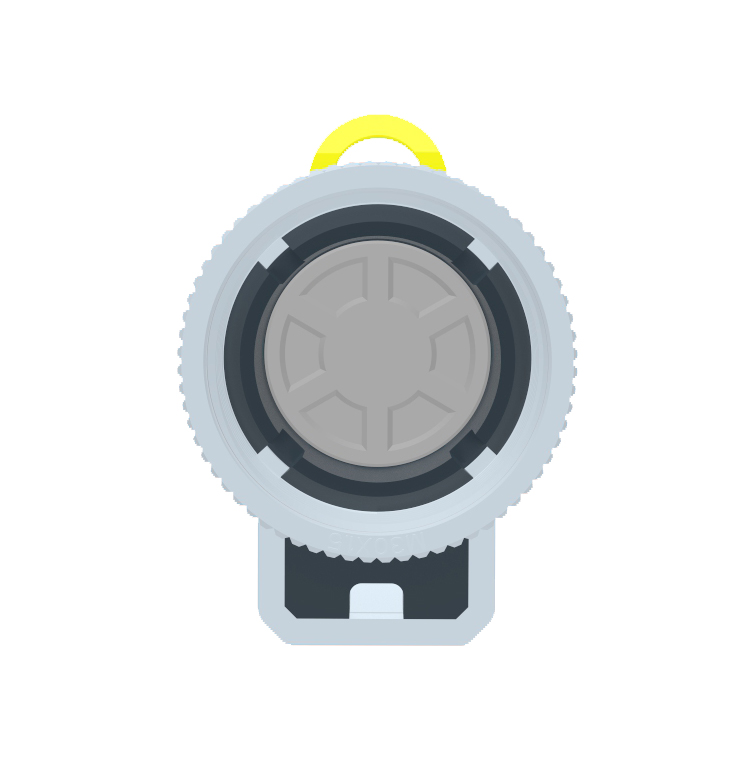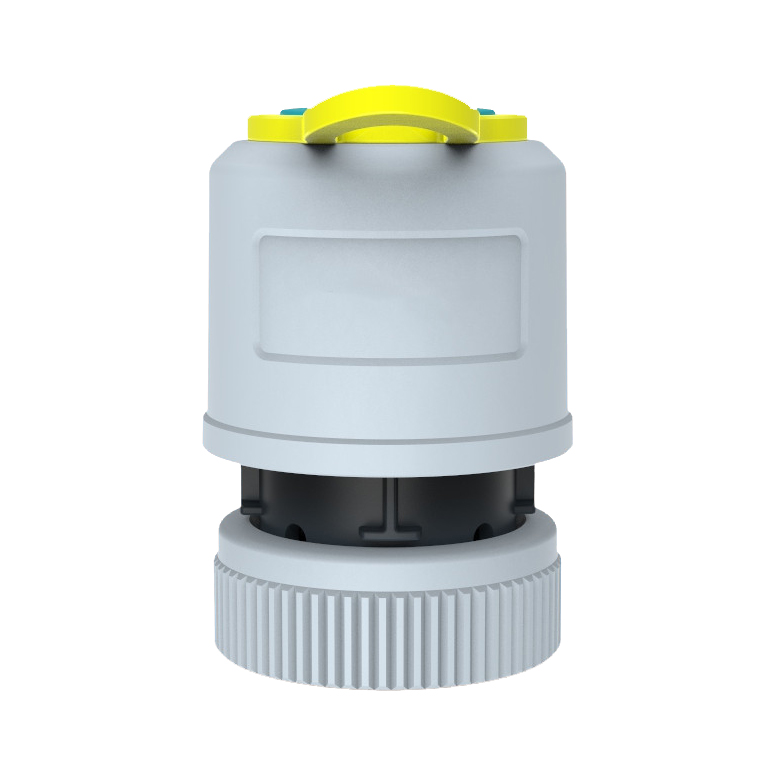920075PL
Thermal actuator with First-open
The actuators are mainly used in floor heating systems to control closing and opening of the valves. It is specifically applied to electric drive part of the branch manifold valve, small valve and dynamic balance valve.
Feature:
Compact size, small dimensions
Fast installation and disassembly
Noiseless
Low power consumption
Full view stroke indication
Temperature control in intelligent HVAC systems on the market not aimed at energy saving will end nowhere- starting with the use of room thermostats and terminal thermal actuators.
Thermal actuator is widely used in underfloor heating and ceiling radiant heating and cooling systems, air conditioning systems, radiator heating systems, and other systems that require temperature control or fluid on-off control, automatically switch the controlled loops by receiving signals from room thermostats or other electrical switches. Usually used in combination with a manifold.
SMLG offers two complete control heating systems that you can choose from, depending on your preferences and needs.
One refers to a wireless control automation system, where the wall thermostat communicates with the control terminal block via radio waves.
The other is a traditional wired automation system that requires the installation of wires connecting its individual components.
Room Thermostat
A broad range of devices for different applications
With wifi and non-wifi two styles
Base Station
Wired Base station with pump and boiler control
With 8 zones in 24V/230V
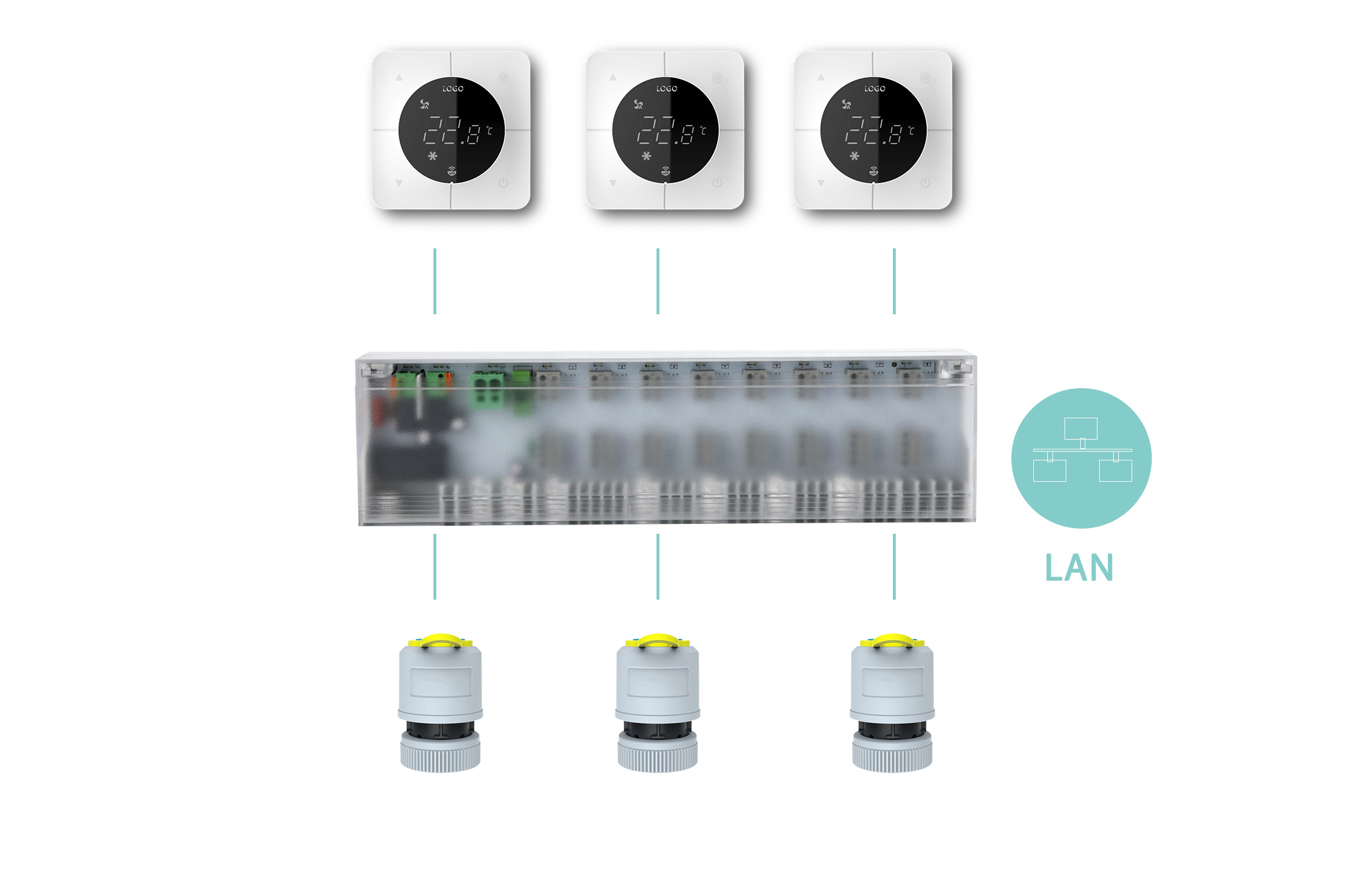
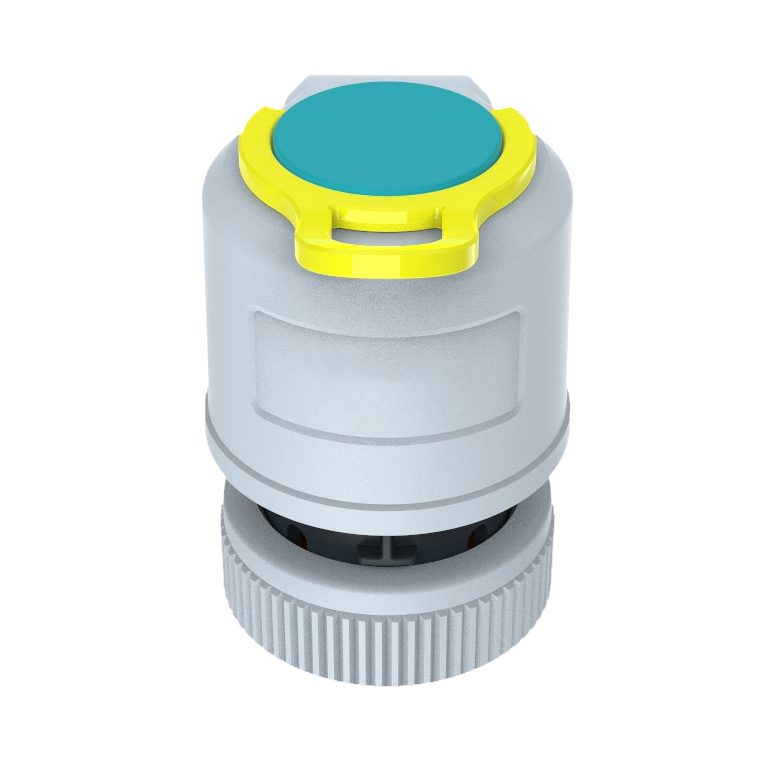
Voltage: 230V/24V/12V version
Control direction: Normally Closed / Normally Open
Power consumption: 2W
Working temperature: -5℃-60℃
Force:100±10N
Stroke: ≥4mm
Protection Grade: IP54
Standard: EN 60730
Adapter: M30x1.5mm/M28x1.5mm
Closing and opening time:3-5mins
Housing material: PA66+30%GF

User manual
Certification
Customize Solution
If you want to develop new thermal actuator, our team will assist you to achieve your idea according to these details as follow:
-Supply the shape design.
-Supply the spring force.
-Supply the voltage.
-Supply the dimension of full open and close for valve.

